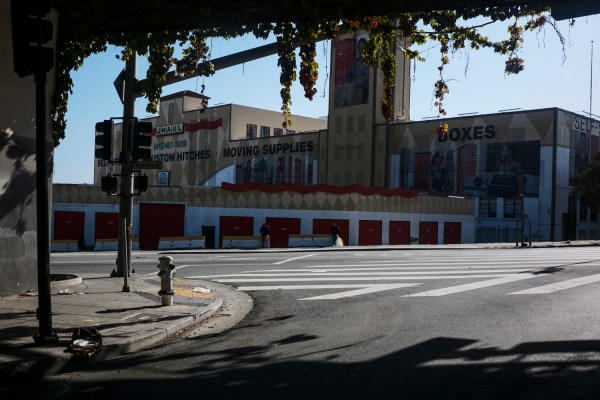On Thursday evening, only eleven day laborers trickled into the Nuevo Sol Day Labor and Domestic Worker Center in the Mission District. The weekly gathering, once drawing more than forty workers, has dwindled since ICE arrests ramped up under Trump’s second administration. The center offers job training and resources, but fear could be shaping who dares to show up.
“Immigrants aren’t scared, they’re terrified,” said Raúl R., 63, a day laborer and flea-market vendor, before the meeting began. Raúl has sold merchandise at the Modesto flea market for fifteen years. Now the stalls are empty. “Recently, I haven’t made a cent. The flea market is deserted.”
His story is not unique. As ICE steps up arrests and deportations across California — including arrests at San Francisco courthouses — thousands of day laborers in the city who work in construction, landscaping, child care and domestic jobs are bearing the brunt of the economic and emotional fallout.
More on day laborers
- An immigrant came to San Francisco for work. One injury changed everything
- How immigrants can protect themselves from wage theft in California
- Op-Ed: Five ways to defend San Francisco’s immigrant day laborers
“The devastation is horrible, unlike anyone has experienced,” said California Labor Commissioner Lilia García-Brower, describing the impact of “masked individuals who appear to be federal agents… sweeping people off the streets.” Still, she emphasized: “In our state, every worker is protected, no matter their immigration status.”
But protections on paper offer little comfort when fear keeps people from working, or from employers offering informal work to begin with.
At Garfield Park in the Mission, Pancho, a slim and watchful 28-year-old from Guatemala, has waited for jobs nearly every day for eight years. “There hasn’t been work for a long time,” he said. By Thursday, he had managed just six hours of construction work. “Nothing last week. The last time I really worked was two months ago, two weeks straight.” His biggest worry is raising $600 for his share of rent in a shared Mission room.
Then he asked: “What do I get out of talking to you? Others have asked me questions too, but nothing changes.” Moments later, he and three friends walked to a nearby market, joking as they pooled coins for donated chips, bottles of soda, and water.
For Francisco Herrera, the group’s organizer, these dwindling jobs and heightened fears explain the shrinking attendance at Nuevo Sol meetings. “I know of two families who didn’t go to medical appointments,” he said. “Another family is considering keeping their children out of school, and one Nigerian domestic worker is too afraid to leave her house.

The crackdown has already torn families apart. Norbelina R., 35, a Honduran domestic worker and mother of four, lost her husband, Madian, 36,, when ICE detained him during an asylum hearing July 31. Without his construction income, she quickly fell months behind on the $1,800 rent for a single room in a Mission SRO.
“I’d be dead from a heart attack if I were in her shoes,” said Winnie Porter, a retired SFUSD teacher who launched a GoFundMe to help the family. Madian was released from detention on Sunday, but the family still faces mounting debt and instability.
Back at Nuevo Sol, Herrera looked around the half-empty room. An accomplished singer-songwriter, he lifted his guitar and began to sing a corrido about loneliness and finding community in each other:
“Estar sin familia en un suelo que no es tuyo,
se siente como una herida y aquí se busca consuelo.
Cuando se pida un favor, no hay que negarlo, hay que tendernos la mano como si fuera un hermano.”



